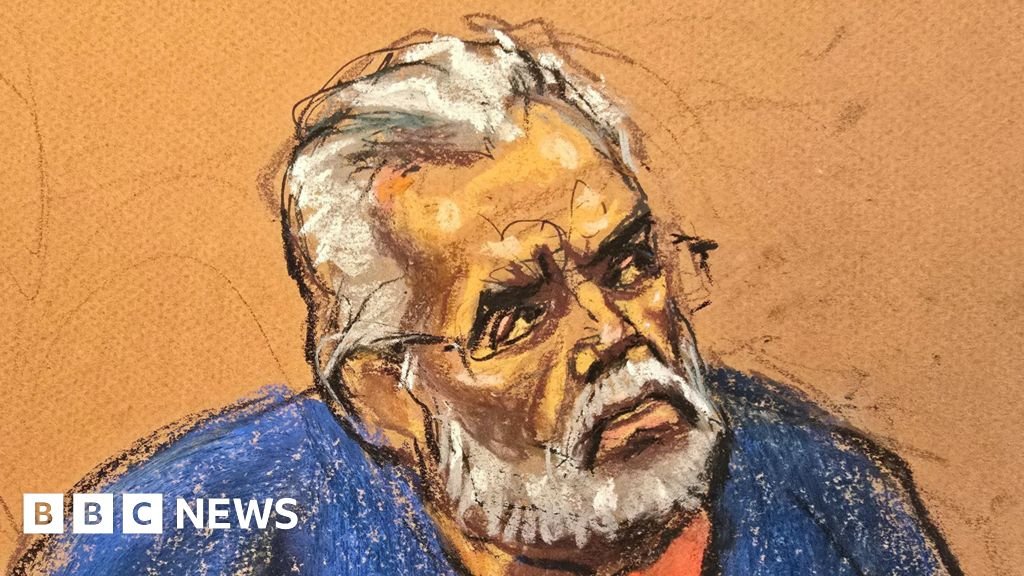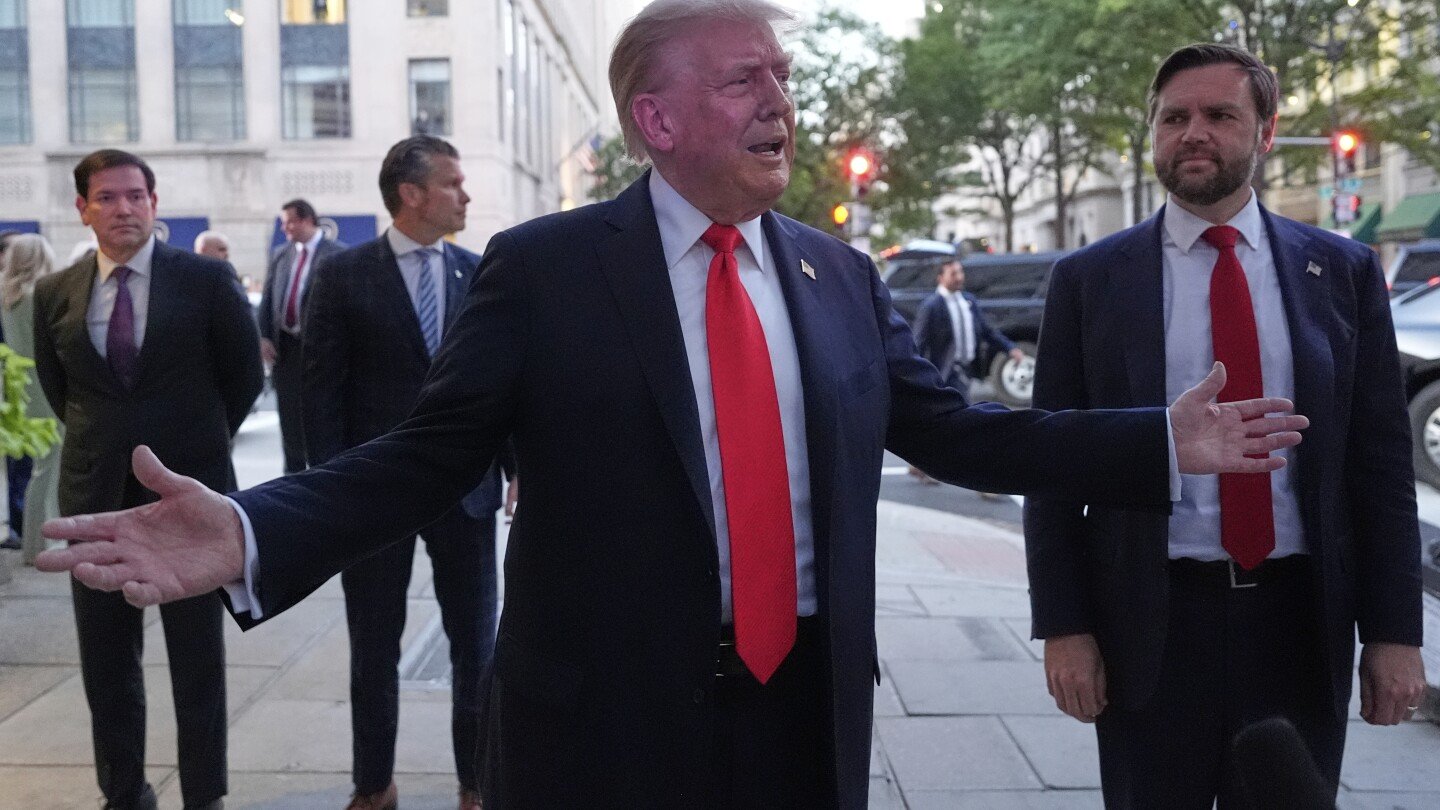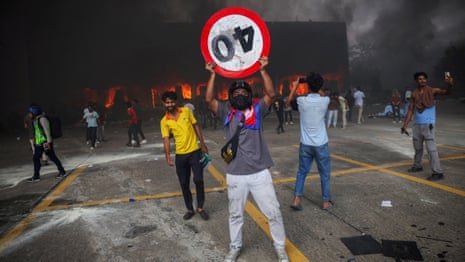Top Stories
Mexican drug lord ‘El Mayo’ enters guilty plea

Mexican drug lord, Ismael ‘El Mayo’ Zambada, has entered a guilty plea to two drug smuggling and conspiracy charges in a court in New York, bringing an end to one of the longest and most notorious criminal careers in the history of organised crime.
Zambada was not just any drug lord.
He was the founder of the Sinaloa Cartel, for years the biggest and most powerful criminal organisation in Mexico – with an astonishing global reach.
Last year, he pleaded not guilty to a raft of drug smuggling, gun-running and money laundering offences. But now, he has changed his plea before a federal judge in Brooklyn.
In doing so, he officially accepted his role in creating the vast criminal network which has sent huge amounts of cocaine and other drugs into the US since he co-founded the cartel at the end of the 1980s.
The Associated Press reported that in court Zambada apologised for his actions.
“I recognise the great harm illegal drugs have done to the people in the United States and Mexico,” he said through a Spanish-language interpreter, the AP reported. “I apologise for all of it, and I take responsibility for my actions.”
Local Mexican media has also said that Zambada admitted “the organisation that I headed fed corruption in my country by paying police, military commanders and politicians who allowed us to operate freely.”
The step comes weeks after US prosecutors confirmed they would not be seeking the death penalty against the 77-year-old Mexican kingpin.
Zambada was arrested in Texas last year following an extraordinary double-cross by the sons of his former ally, the jailed co-founder of the Sinaloa Cartel, Joaquín ‘El Chapo’ Guzmán.
El Chapo was sentenced to life imprisonment in the same court in 2019.
After his arrest, the cartel splintered into two main factions: one led by El Mayo, and its rival, led by Guzman’s sons, known as ‘Los Chapitos’. The conflict between the two sides continues to rage, particularly in the state of Sinaloa itself.
In late July 2024, Zambada was allegedly lured to a meeting with one of El Chapo’s son, Joaquín Guzmán López.
Initial reports suggested Guzmán López then duped his rival into boarding a light aircraft, but Zambada later claimed he was ambushed and overpowered by Los Chapitos, and forcibly removed to Texas.
US law enforcement officials were waiting for the aircraft when it landed near El Paso and both men were immediately taken into custody.
By entering a guilty plea, Zambada is expected to receive a more lenient sentence. In his late 70s and reportedly in poor health, he may have reasoned that it was futile to continue to claim his innocence, especially given Guzmán’s conviction and life sentence in 2019.
“El Mayo will spend the rest of his life behind bars. He will die in a US federal prison where he belongs,” US Attorney General Pam Bondi told reporters.
It was confirmed last year that both the Guzmán sons – Joaquín and his younger brother, Ovidio – were negotiating plea bargains with the US government.
In May, 17 members of the Guzmán family were escorted into the US by officials. Last month, Ovidio pleaded guilty in Chicago to multiple charges of drug smuggling and involvement in a continuing criminal enterprise.
At his height, Zambada was probably the most powerful drug lord in the world.
More shadowy than other kingpins – particularly El Chapo whose escapes from prison in 2001 and 2015 made headlines around the world – Zambada was no less ruthless or calculating.
For some five decades, he successfully evaded arrest or capture. During that time he oversaw the transport of vast quantities of heroin, cocaine and methamphetamine into the US via land, sea and air.
Now, in a US courtroom, one of the most enduring names in global drug trafficking has accepted his role at the top of the one of the biggest and most sophisticated criminal networks in the world.
He is due to be sentenced in January 2026.
Top Stories
Larry Ellison eclipses Elon Musk as world’s richest person

Oracle’s Larry Ellison became the richest person in the world Wednesday morning, with shares of the tech giant he co-founded surging more than 40%.
As of 10 a.m. ET, Ellison’s wealth was nearly $400 billion. Tesla CEO Elon Musk, who had occupied the top spot, currently has a fortune of about $385 billion, according to Bloomberg. The news outlet keeps tabs on the world’s wealthiest people with its billionaires index.
Behind Ellison and Musk in the rankings sit Meta founder Mark Zuckerberg, Amazon founder Jeff Bezos and Google co-founders Larry Page and Sergey Brin.
The rapid rise in Ellison’s wealth comes as he and his family push into artificial intelligence, media and politics.
Oracle’s stock move Wednesday was fueled primarily due to the company announcing a $450 billion-plus backlog for cloud services and multibillion-dollar computing contracts with major AI players Nvidia and ChatGPT backer OpenAI.
“Over the next few months, we expect to sign-up several additional multi-billion-dollar customers,” Oracle said. It expects that backlog of business will likely soon “exceed half-a-trillion dollars.”
The Ellison family further expanded its empire when Ellion’s son, David, recently completed an $8 billion takeover of CBS and MTV owner Paramount Global. That transaction was funded in part by $6 billion from the Ellison family fortune, CNBC reported.
Larry Ellison, a major backer of President Donald Trump, also recently visited the White House, announcing a massive datacenter project with Softbank’s chief Masayoshi Son and OpenAI CEO Sam Altman.
That project promised to use Oracle technology in creating the $500 billion network of datacenters.
Ellison, 81, co-founded Oracle more than 40 years ago. The company’s stock market value closed in on $1 trillion during Wednesday’s trading.
Top Stories
Live updates: Trump’s emergency order over Washington, D.C., set to expire

Congress did not extend President Donald Trump’s Aug. 11 order that federalized the Washington, D.C., city police force and launched a surge of law enforcement into the city. The takeover will end at midnight, according to Mayor Muriel Bowser’s office, but in practical terms, what citizens see might not change much. D.C. guard members’ orders have been extended through December, and they are under the president’s direct command, unlike in the states where governors command their National Guard contingents.
This measure of control the city may be regaining comes the same day a House committee begins debating 13 bills that, if approved, would wrest away even more of the city’s governing ability.
Trump’s takeover of the capital’s policing and Wednesday’s discussions by the House underscore how interlinked the nation’s capital is with the federal government and how much the city’s capacity to govern is beholden to federal decisions.
In practical terms, what citizens see might not change much.
Other news we’re following today:
- Transit secretary probes North Carolina transit after killing: Following the killing of Ukrainian refugee Iryna Zarutska on a Charlotte train last month, Transportation Secretary Sean Duffy has threatened to pull federal funding if his department’s investigation finds security problems in the North Carolina city’s mass transit system. Charlotte’s mayor called for a “bipartisan solution” to address repeat criminal offenders.
- Detained Hyundai plant workers: South Korean media reports a charter plane has left for the U.S. to bring back Korean workers detained in an immigration raid in Georgia. A total of 475 workers, more than 300 of them South Koreans, were rounded up in the Sept. 4 raid at the Hyundai battery plan. South Korea’s government later said it reached an agreement with the U.S. for the release of the workers.
- Lisa Cook to remain Fed governor for now: A federal judge ruled Tuesday that the embattled Federal Reserve governor can remain in her position while she fights Trump’s efforts to fire her. The ruling, which will almost certainly be appealed, is a blow to the Trump administration’s efforts to assert more control over the traditionally independent Fed, which sets short-term interest rates to achieve its congressionally mandated goals of stable prices and maximum employment.
Top Stories
‘This is our revolution. It’s our turn now’: Nepal’s ‘gen Z protesters’ speak out against corruption | Nepal

The whiteboard listing the names of patients at a hospital in central Kathmandu tells the story of a protest gone badly wrong. Beside each name is written their ages; 18, 22, 20, 18, 23. The list goes on.
By Wednesday morning there were still scores of Nepal’s young being treated for gunshot wounds and injuries sustained when police opened fire on protesters in Kathmandu on Monday.
These are the so-called gen Z protesters, a generation of young Nepalis who led a mass protest against government corruption, nepotism and a ban on social media sites, and paid for it with bullet wounds and in some cases their lives. Hundreds were injured and at least 22 are believed to have died.
From his hospital bed, Saurav*, an 18-year-old college student, said he had been excited to join the protest. “When it comes to the nation, there is no need for motivation. The politicians are just selling our country for their own greed. That’s not supposed to happen,” he said.
The violence that broke out before the police opened fire on the huge crowds that had gathered outside the parliament building in Kathmandu on Mondays was, insists Saurav, instigated by groups outside their anti-corruption movement.
As the shooting started, a protester standing in front of Saurav was shot in the chest and died on the spot, he said. Pellets from the shot hit his hand. “I was screaming in pain and my friends carried me to this hospital … It was totally unnecessary. Killing people, I don’t think that’s humanity. That’s just disgusting,” he said.
By Tuesday afternoon the prime minister, KP Sharma Oli, had resigned and thousands of Nepalis had taken to the streets to spontaneously celebrate his downfall and express their anger.
The mood initially was one of jubilation at what many saw as the end of widespread government corruption, and bitter resentment at the killing of the protesters the day before.
For the past 10 years, Nepal has been ruled by the same three elderly leaders – Oli, Sher Bahadur Deuba and Pushpa Kamal Dahal – who have effectively taken up the post of prime minister on a rotating basis. Between them, they have led the country on 12 separate occasions. While yesterday’s protests may have been triggered by the government’s ban on dozens of social media sites last week, it was built on years of frustration and anger at politicians who are widely viewed as corrupt and self-serving.
By 4pm the main roads into the heart of the city were packed with protesters, many on motorbikes, chanting, shouting and waving the Nepali flag, in defiance of a government curfew. Many more lined the streets, filming the moment and taking selfies, sensing that history was being made.
Much of the anger was directed at Oli, with handwritten signs scrawled on walls and T-shirts calling for him to be killed. “He killed our youth. He should be dead,” said one.
The focus of the crowds was Singha Durbar, the complex of government ministries, which was then breached and much of it set on fire. One group drove a police van out of the main gate, carrying dozens of triumphant protesters on its roof. Three young men scaled the ornate entrance gate to wave the national flag. On the ground below, a group belted out the national anthem. A small number of soldiers stood by but did little to intervene. There was no sign of the police.
As thick, acrid smoke belched out across the streets and over the city, some protesters emerged from the burning buildings carrying reams of paper, office chairs and computer monitors.
“This is a revolution. This is the end of the corruption. It’s our turn now,” said Sujan Dahal, a young Nepali celebrating the downfall of the prime minister in Kathmandu on Tuesday. “The government was so corrupt. They used that money to improve their own lives, but there has been no change in the lives of normal people.”
By the end of the day, the scale of destruction had shocked many Nepalis, amid a sense that the movement has been sabotaged by groups seemingly bent on retribution and violence.
“I’m feeling bad. This is not good for us,” said a young man, who did not want to give his name. Along with government ministries and residences, dozens of other properties have been set on fire across the city, including a luxury hotel and a prestigious private school.
Throughout the day, groups of protesters had formed human chains around some sites to protect them, including the entrance to an army camp. “We are protecting the army. We are not against the army. We are against the government. The corruption. They are trying to shut our voices by stopping social media. Today we won. It is our victory. Oli has resigned,” said Sajad Ansari, 20.
By Wednesday morning, the administrative heart of Kathmandu looked like the aftermath of a missile attack. Burnt-out buildings stood smouldering in the light rain. The charred shells of cars and motorbikes lay strewn across the streets. Plumes of dark smoke still rose over the city.
The city is now in a state of almost complete lockdown, with soldiers stationed at major junctions enforcing a strict curfew.
It is unclear what shape a future government might take.
It is a sentiment shared by Saurav even as he recovers from his injuries but, like many, he remains optimistic. “If the power is in the right hands, of course Nepal will develop,” he said. “Our young generation are very capable. We don’t seek for our own greed. We think about the good of the nation.”
* Name has been changed
-

 Business2 weeks ago
Business2 weeks agoThe Guardian view on Trump and the Fed: independence is no substitute for accountability | Editorial
-
Tools & Platforms4 weeks ago
Building Trust in Military AI Starts with Opening the Black Box – War on the Rocks
-

 Ethics & Policy1 month ago
Ethics & Policy1 month agoSDAIA Supports Saudi Arabia’s Leadership in Shaping Global AI Ethics, Policy, and Research – وكالة الأنباء السعودية
-

 Events & Conferences4 months ago
Events & Conferences4 months agoJourney to 1000 models: Scaling Instagram’s recommendation system
-

 Jobs & Careers2 months ago
Jobs & Careers2 months agoMumbai-based Perplexity Alternative Has 60k+ Users Without Funding
-

 Podcasts & Talks2 months ago
Podcasts & Talks2 months agoHappy 4th of July! 🎆 Made with Veo 3 in Gemini
-

 Education2 months ago
Education2 months agoMacron says UK and France have duty to tackle illegal migration ‘with humanity, solidarity and firmness’ – UK politics live | Politics
-

 Education2 months ago
Education2 months agoVEX Robotics launches AI-powered classroom robotics system
-

 Funding & Business2 months ago
Funding & Business2 months agoKayak and Expedia race to build AI travel agents that turn social posts into itineraries
-

 Podcasts & Talks2 months ago
Podcasts & Talks2 months agoOpenAI 🤝 @teamganassi

